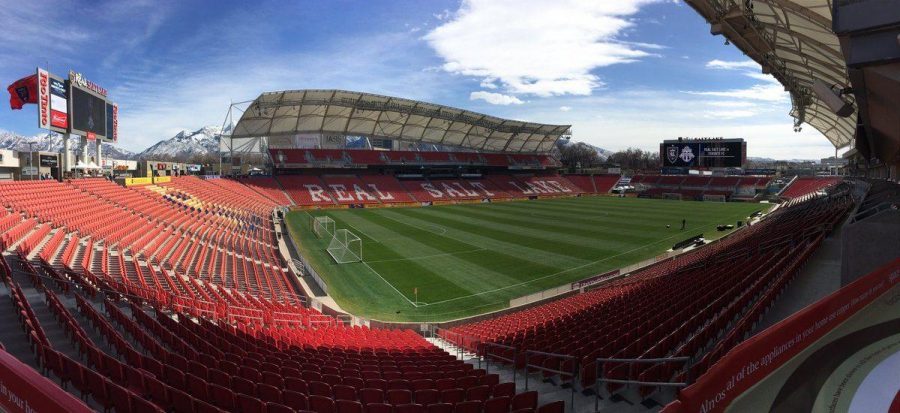2011 was a big year for Real Salt Lake. The Sandy-based soccer club made it to the conference semifinals of the Major League Soccer Cup, as well as the quarterfinals of the U.S. Open Cup. It is also the year the property value of RSL’s Rio Tinto Stadium was cut nearly in half.
When it was built in 2007, Rio Tinto Stadium had a taxable value of approximately $110 million, according to an agreement between RSL and Sandy officials reported on by the Deseret News. However, after lobbying efforts and an appeal on behalf of RSL, the taxable value was brought down to $53.1 million in 2011, according to The Salt Lake Tribune.
The decrease was approved by the Salt Lake County Council at a public board meeting. However, no one on the board seems to remember the bill, or discussing it. As the Deseret News reports, “County minutes show no records that the stadium appeal was specifically discussed, as it was lumped in among more than 700 other evaluations proposed by the county assessor’s office.”
As a result of the property value reduction, RSL has been saving hundreds of thousands every year in what would have gone towards state and city taxes. According to Deseret News analysis, the soccer franchise has been saving $768,000 every year, adding up to $5.4 million since 2011. That is a lot of money.
For years, RSL’s tax break went unnoticed and unreported. Then commercial real estate agent Joe Scovel began investigating. He requested public records and started digging through documents, eventually uncovering the property devaluation.
Whether or not the property reduction was legitimate, there are concerns to be raised with how it was passed. The fact that meeting minutes do not show any discussion of the multimillion dollar property reduction is astonishing and troubling. As state Sen. Curt Bramble put it to the Deseret News, he “was surprised to see such a dramatic [decrease] and surprised to see that it was done without the public’s knowledge.”
Indeed, a massive state player like RSL should be transparent with its actions and finances.
Another issue is that RSL is saving money that it arguably owes to the public.
As The Salt Lake Tribune reported, the city of Sandy issued $11 million in bonds to help build the Real Tinto Stadium. Sandy agreed to the deal under the condition that the stadium be valued at no less than $110 million, the minimum needed for RSL to make property tax payments to Sandy.
Now that the property value has decreased so dramatically, it is not immediately clear how RSL is going to pay Sandy back for the bonds.
Thankfully, Scovel’s digging, and the subsequent investigation by Deseret News and Salt Lake Tribune, grabbed the attention of legislators. SB101, a bill sponsored by Sen. Lincoln Fillmore, R-Salt Lake, would require the county board to separately list “significant adjustment[s]” to tax amendments, like the amendments made to Rio Tinto Stadium.
On Feb. 12, the state Senate voted unanimously to approve the bill, according to the Salt Lake Tribune. It is currently waiting to be voted on by the House.
In an effort to maintain transparency and accountability, and to prevent future massive tax cuts to pass without public knowledge or scrutiny, the House should pass SB101, and Gov. Gary Herbert should approve it. If Rio Tinto Stadium’s value reduction was in fact legitimate, then this legislative push shouldn’t bother anyone.
letters@chronicle.utah.edu


